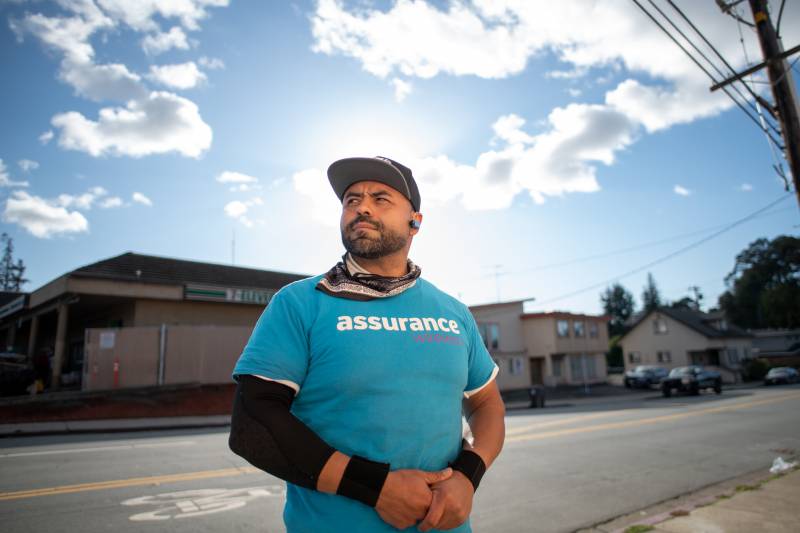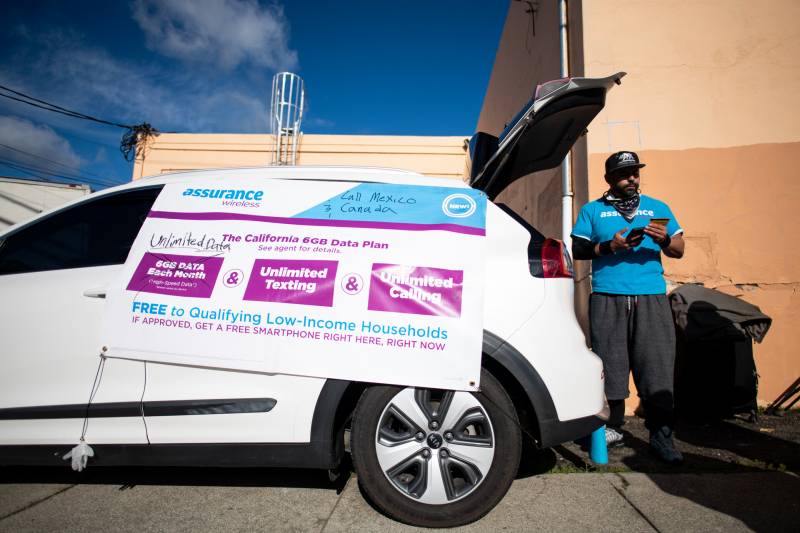In the summer of 2020, Robert Abeyta was charged with assault with a deadly weapon and admitted into Santa Rita Jail in Alameda County.
“I was just in the wrong place at the wrong time and really could have gotten out very quickly if I had the financial resources,” said Abeyta.
Abeyta is 39 and grew up in Oakland’s Fruitvale District. He said he was completely broke at the time of his arrest. But even though his bank account was empty, there were resources available that he could have used to post bail and return to his life on the outside. He just couldn’t access them.
These resources are economic impact payments initially established by the CARES Act, and, even though incarcerated people are eligible for this money, their fight to get it started almost as soon as it became available to them. Nearly two years later, some people are still waiting. KQED has spoken with incarcerated and formerly incarcerated people, advocates, attorneys and detention facility staff to better understand how this happened.
The law and the lawsuit
In the early days of the pandemic, Congress passed the CARES Act, a more than $2 trillion aid package meant to provide a lifeline to the many Americans whose worlds got turned inside out by the pandemic.
Part of this package included stimulus payments, which have since been expanded, and add up to around $3,200 per individual. The stimulus money is distributed by the IRS, so to get it, you had to have filed a tax return. The eligibility requirements for these funds are quite broad: Essentially, if you are a citizen or permanent resident, you aren’t a dependent for tax purposes and you don’t make over $75,000 for individuals, you should qualify.
Shortly after the CARES Act passed, in May of 2020, the IRS determined that incarcerated people weren’t eligible for the stimulus payments and asked over 950,000 incarcerated people to return more than $1 billion worth of payments the IRS had already distributed.
“Prison authorities around the country took note of that and started to treat any attempt by somebody in their custody to apply for or obtain those funds as some form of misconduct,” said Yaman Salahi, a partner at Lieff Cabraser Heimann & Bernstein in San Francisco — even to the extent, Salahi said, that, “we were hearing from people who said, [they were] sent to the hole, which is solitary confinement, because [they] tried to do this, or all of [their] correspondence about this [had] been confiscated.”
Salahi helped argue the class action suit that would confirm incarcerated people are in fact eligible for the stimulus payments initially established by the CARES Act.
“When we took a look at the issue, we determined that the IRS’s position was almost certainly unlawful because it had no basis in the law that Congress passed,” said Salahi.


